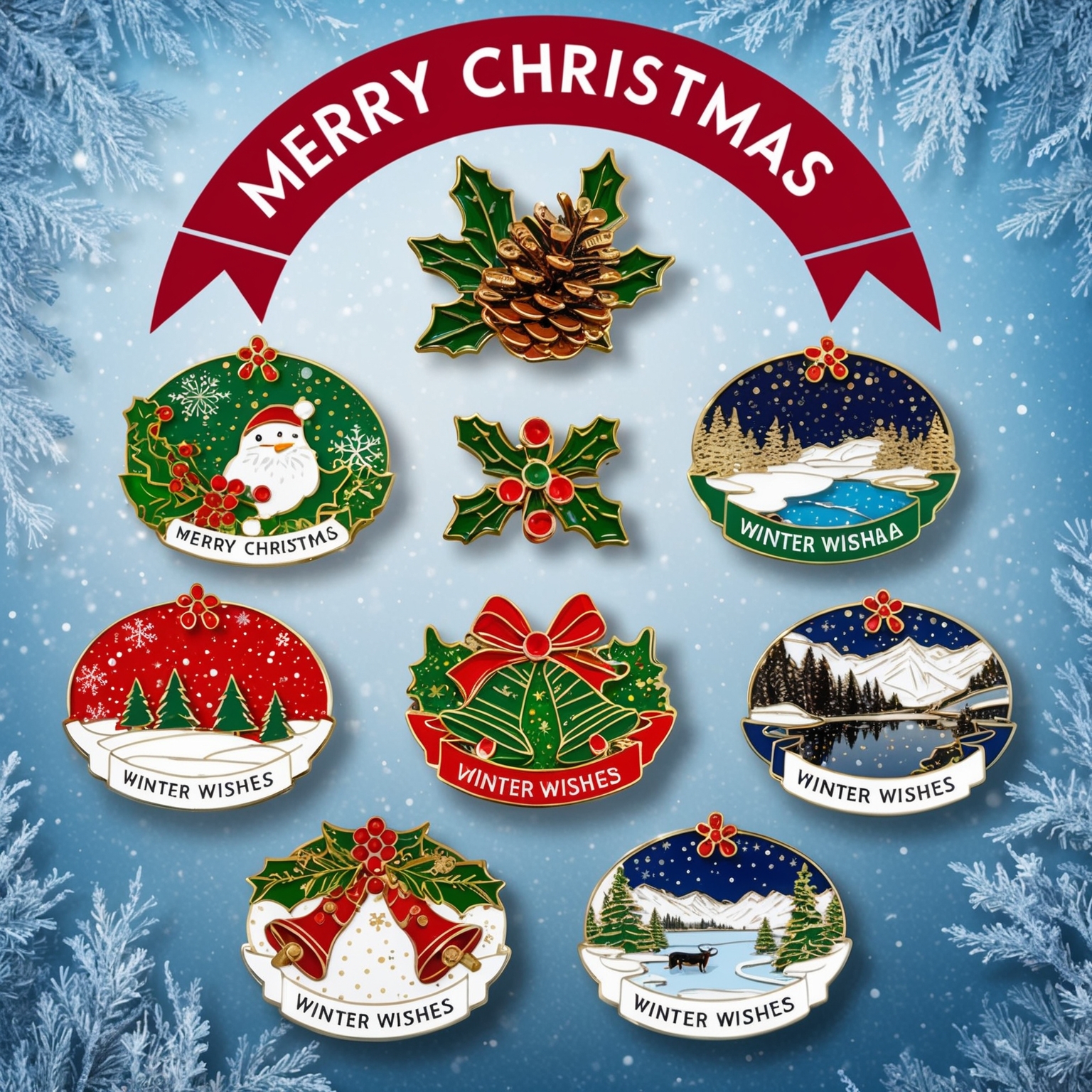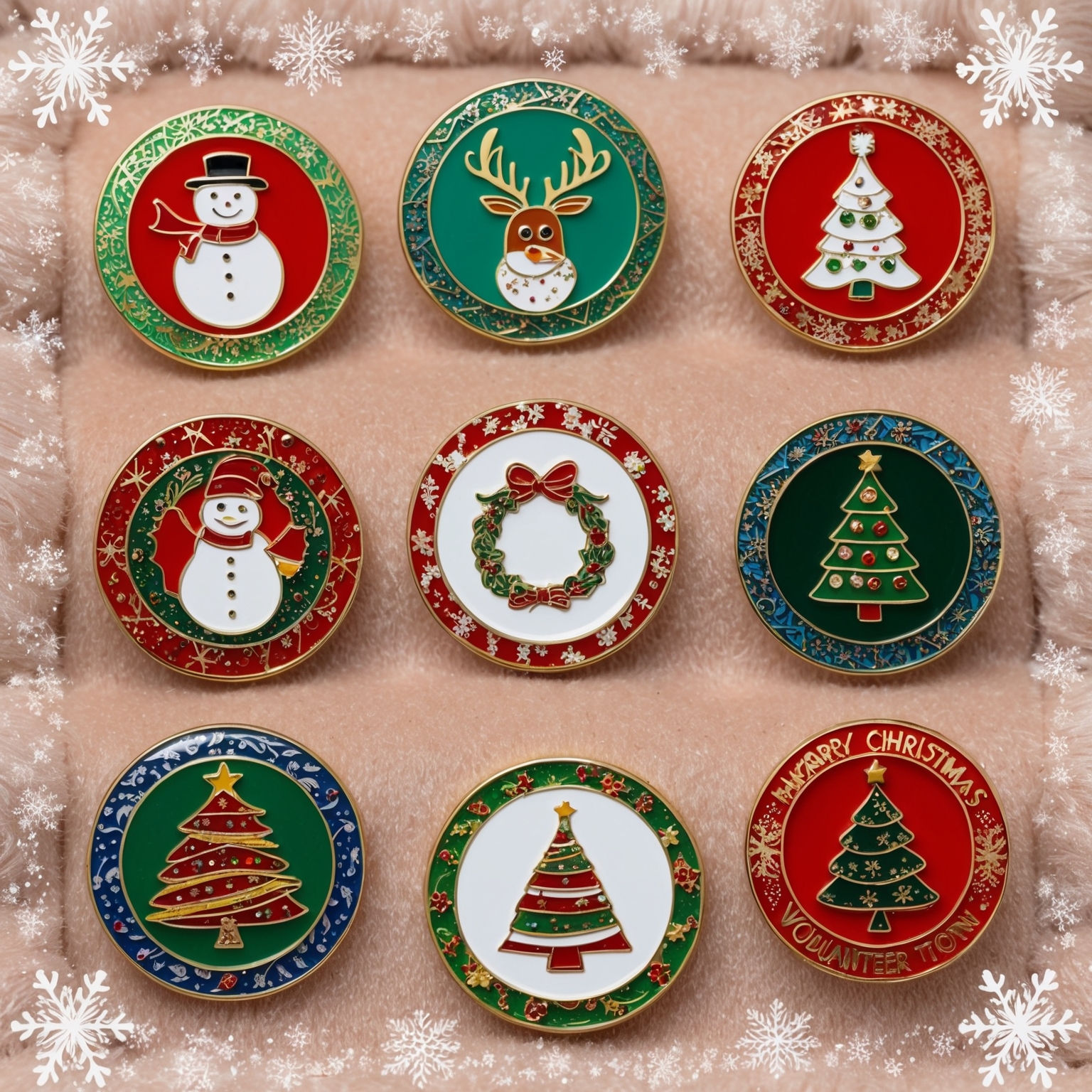Trading pins have long captured the hearts and imaginations of collectors around the world. From sports enthusiasts and Disney fans to participants in international events, the allure of a trading pin transcends age, culture, and geography. But what is it about these small, decorative items that makes them so captivating? This article delves into the psychological aspects of trading pin collecting, exploring the motivations, emotional connections, and social dynamics that drive this popular hobby. By understanding the psychological appeal of a trading pin, we can gain deeper insights into why they hold such a special place in the hearts of collectors.
Trading pins are more than just decorative items; they are symbols of identity, achievement, and connection. From their origins in sports and entertainment to their role in international events like the Olympics, trading pins have evolved into a cherished collectible that fosters a sense of community and belonging among enthusiasts. This article explores the psychological factors that make trading pins so appealing, examining the motivations, emotional benefits, and social interactions that underpin this popular hobby.
The History and Evolution of Trading Pins
Early Beginnings
The tradition of trading pins can be traced back to the late 19th and early 20th centuries, with roots in sports and entertainment. The early use of pins as symbols of affiliation and achievement laid the foundation for the trading pin phenomenon.
- Baseball Pins: In the early 1900s, baseball teams in the United States began creating pins to commemorate championships, significant games, and team affiliations. Fans and players alike cherished these pins as symbols of their dedication and support.
- Olympic Pins: The modern Olympic Games, revived in 1896, played a significant role in popularizing trading pins. Athletes, officials, and spectators exchanged pins as tokens of friendship and international unity. This tradition continues to be a beloved aspect of the Olympic experience.
Growth and Popularity
As trading pins gained popularity, they expanded into various domains, including entertainment, corporate events, and youth organizations.
- Disney Pins: In the late 20th century, Disney introduced trading pins as a way for fans to connect and share their love for Disney characters and parks. Disney pin trading quickly became a global phenomenon, with dedicated events and online communities.
- Youth Organizations: Organizations such as the Boy Scouts and Girl Scouts embraced trading pins as a way to commemorate achievements, events, and milestones. Scouts trade pins at jamborees and other gatherings, fostering camaraderie and a sense of accomplishment.
The Psychology of Collecting Trading Pins
Motivations for Collecting
Collecting trading pins can be driven by a variety of motivations, each reflecting different psychological needs and desires.
- Nostalgia: Many collectors are motivated by a sense of nostalgia, seeking to capture and preserve memories of past experiences, events, and affiliations. Trading pins serve as tangible reminders of special moments and personal milestones.
- Aesthetic Appreciation: The design and craftsmanship of trading pins can be a significant draw for collectors. The artistic appeal of pins, with their vibrant colors, intricate details, and creative themes, can spark a deep appreciation for their beauty and uniqueness.
- Achievement and Mastery: For some collectors, the pursuit of rare and valuable pins represents a challenge and an opportunity to demonstrate their expertise and dedication. Completing a set or acquiring a sought-after pin can provide a sense of achievement and mastery.
- Social Connection: Trading pins foster social interactions and connections among collectors. The act of trading pins creates opportunities for meeting new people, sharing stories, and building relationships based on a shared passion.
Emotional Benefits of Collecting
Collecting trading pins can offer numerous emotional benefits, contributing to overall well-being and life satisfaction.
- Joy and Excitement: The process of searching for, acquiring, and trading pins can bring joy and excitement. The thrill of discovering a new pin or completing a collection can create moments of happiness and fulfillment.
- Sense of Belonging: Being part of a community of collectors can provide a sense of belonging and acceptance. Shared interests and common goals create a supportive and inclusive environment where collectors can connect and bond.
- Stress Relief: Engaging in the hobby of collecting trading pins can serve as a form of stress relief and relaxation. Focusing on the pursuit of pins and the enjoyment of the hobby can provide a mental break from daily stresses and challenges.
- Personal Identity: Collecting trading pins can be a way for individuals to express and reinforce their personal identity. Pins can represent affiliations, interests, and values, allowing collectors to showcase who they are and what they care about.
Social Dynamics of Trading Pins
The social dynamics of trading pins play a crucial role in the appeal and enjoyment of the hobby. Interactions and exchanges among collectors create a rich and engaging social experience.
- Trading Etiquette: Trading pins involves a set of unwritten rules and etiquette that guide interactions among collectors. Respecting these norms, such as fair trades and polite negotiation, fosters positive relationships and a sense of trust within the community.
- Events and Gatherings: Trading pin events and gatherings provide opportunities for collectors to meet in person, exchange pins, and share their passion. These events, whether small local meetups or large international conventions, create a vibrant and dynamic social scene.
- Online Communities: The internet has expanded the reach and accessibility of trading pin communities. Online forums, social media groups, and dedicated websites allow collectors to connect, trade, and share information regardless of geographic location.
- Mentorship and Learning: Experienced collectors often take on mentorship roles, sharing their knowledge and expertise with newcomers. This mentorship fosters a supportive environment where collectors can learn and grow together.
The Impact of Trading Pins on Personal Development
Skill Development
Collecting trading pins can contribute to the development of various skills that are valuable in other areas of life.
- Negotiation Skills: Trading pins involves negotiation and bartering, requiring collectors to develop and refine their negotiation skills. Learning how to propose fair trades, articulate value, and reach mutually beneficial agreements can be valuable in personal and professional contexts.
- Research and Organization: Successful pin collectors often engage in research to learn about the history, rarity, and value of different pins. This research requires critical thinking, attention to detail, and organizational skills to manage collections and track acquisitions.
- Networking and Communication: Building connections within the trading pin community involves effective communication and networking skills. Collectors learn how to engage with others, build relationships, and navigate social interactions in diverse settings.
Cognitive Benefits
Engaging in the hobby of collecting trading pins can also offer cognitive benefits, supporting mental agility and creativity.
- Memory and Recall: Remembering details about specific pins, their origins, and their significance can enhance memory and recall abilities. Collectors often develop extensive knowledge about their collections, which requires mental organization and retrieval.
- Problem-Solving: The pursuit of rare and valuable pins often involves problem-solving and strategic thinking. Collectors must determine how to find, acquire, and trade for desired pins, considering factors such as availability, value, and negotiation strategies.
- Creativity: Designing custom trading pins or envisioning new themes and concepts can stimulate creativity. Collectors who create their own pins engage in artistic expression and innovation, adding a personal touch to their collections.
Emotional and Psychological Growth
The emotional and psychological growth associated with collecting trading pins can contribute to overall well-being and resilience.
- Patience and Perseverance: The process of building a trading pin collection requires patience and perseverance. Collectors learn to manage delays, setbacks, and challenges, developing resilience and determination.
- Emotional Regulation: Engaging in a fulfilling hobby like collecting trading pins can support emotional regulation and balance. The joy and satisfaction derived from the hobby can help manage negative emotions and promote a positive outlook.
- Sense of Purpose: Collecting trading pins can provide a sense of purpose and direction, offering a meaningful activity that brings joy and fulfillment. This sense of purpose can enhance overall life satisfaction and contribute to a positive self-concept.
Case Studies and Examples
Disney Pin Trading
Disney pin trading is one of the most popular and well-organized trading pin communities, with a rich history and vibrant culture.
- Origins and Growth: Disney pin trading began in the late 1990s as part of the Millennium Celebration at Walt Disney World Resort. The activity quickly gained popularity, leading to the creation of thousands of unique pins and dedicated trading events.
- Community and Events: Disney pin traders participate in a variety of events, from informal park exchanges to official pin trading nights and conventions. These gatherings foster a sense of community and connection among Disney enthusiasts.
- Emotional Appeal: For many Disney pin traders, the hobby is deeply intertwined with nostalgia and personal memories. Collecting pins allows them to relive cherished experiences and celebrate their love for Disney characters and stories.
Olympic Pin Trading
Olympic pin trading is a beloved tradition that brings together participants from around the world, creating a unique and inclusive global community.
- Historical Significance: Olympic pin trading dates back to the first modern Olympic Games in 1896. Over the years, the tradition has grown, with each Games introducing new and collectible pins.
- Cultural Exchange: The practice of trading pins at the Olympics promotes cultural exchange and international friendship. Athletes, officials, and spectators from different countries come together to share pins and stories, fostering mutual understanding and respect.
- Collectibility and Rarity: Olympic pins are highly collectible, with limited editions and rare designs often commanding significant value. Collectors take pride in acquiring pins from different Games and countries, reflecting the global nature of the event.
Sports Team Pin Trading
Sports team pin trading is a popular activity among fans, players, and organizations, celebrating team spirit and loyalty.
- Team Identity: Trading pins featuring team logos, mascots, and colors are cherished symbols of team identity and pride. Fans wear and trade these pins to show their support and connection to their favorite teams.
- Event Commemorations: Sports teams create pins to commemorate significant events, such as championships, anniversaries, and special games. These pins serve as tangible reminders of memorable moments in sports history.
- Community Building: Trading pins at sports events and fan gatherings fosters a sense of community and camaraderie among fans. The activity creates opportunities for fans to connect, share their passion, and build lasting relationships.
Challenges and Considerations in Trading Pin Collecting
Authenticity and Counterfeits
One of the challenges in trading pin collecting is ensuring the authenticity of pins and avoiding counterfeits.
- Recognizing Authentic Pins: Collectors must develop the ability to recognize authentic pins by examining details such as design quality, materials, and official markings. Research and knowledge are essential for identifying genuine pins.
- Avoiding Counterfeits: Counterfeit pins can be a significant issue in the trading pin market. Collectors should be cautious when purchasing pins from unknown or unverified sources, and seek out reputable sellers and trading partners.
Managing Collections
Managing a trading pin collection requires organization, care, and attention to detail.
- Storage Solutions: Proper storage is essential for preserving the condition and value of trading pins. Collectors should use display cases, pin boards, and protective covers to keep their pins safe from damage and deterioration.
- Inventory and Documentation: Keeping an inventory of the collection, including details about each pin’s origin, significance, and condition, helps collectors track their acquisitions and manage their collections effectively.
Balancing Passion and Practicality
Balancing the passion for collecting trading pins with practical considerations is important for maintaining a healthy and enjoyable hobby.
- Budgeting: Collecting trading pins can be an expensive hobby, especially when pursuing rare and valuable pins. Collectors should set budgets and make informed decisions to avoid overspending.
- Time Management: Engaging in the hobby of trading pin collecting should not interfere with other responsibilities and commitments. Collectors should allocate time for their hobby in a way that balances with their overall lifestyle and priorities.
Conclusion
Trading pins capture our hearts through their rich history, aesthetic appeal, and the emotional and social connections they foster. The psychological aspects of collecting trading pins reveal a complex interplay of motivations, emotional benefits, and social dynamics that drive this beloved hobby. Whether motivated by nostalgia, aesthetic appreciation, achievement, or social connection, collectors find joy, fulfillment, and a sense of belonging in the world of trading pins.
Understanding the psychological appeal of trading pins deepens our appreciation for these small yet powerful symbols. By exploring the motivations, emotional connections, and social interactions that underpin trading pin collecting, we gain valuable insights into why this hobby continues to captivate enthusiasts around the world. As collectors continue to trade, cherish, and celebrate these pins, they contribute to a vibrant and dynamic community that reflects the enduring appeal of trading pins.
If you are interested in buying high quality custom trading pins, you can call us at 1-800-641-1299 or fill out a FREE quote form.







